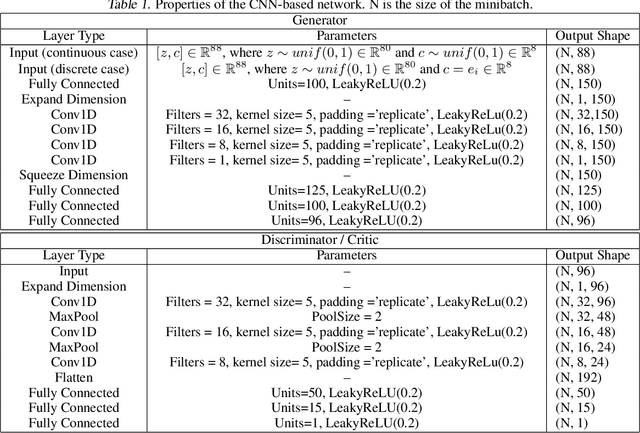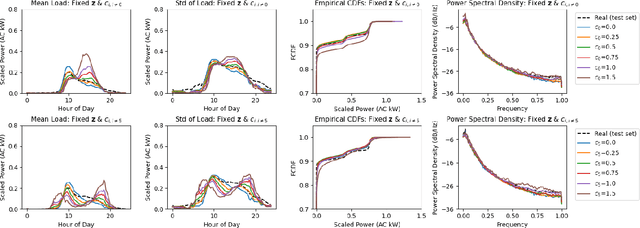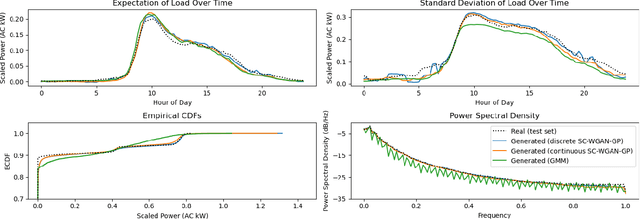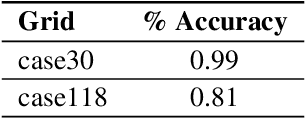Arun Majumdar
TemperatureGAN: Generative Modeling of Regional Atmospheric Temperatures
Jun 29, 2023Abstract:Stochastic generators are useful for estimating climate impacts on various sectors. Projecting climate risk in various sectors, e.g. energy systems, requires generators that are accurate (statistical resemblance to ground-truth), reliable (do not produce erroneous examples), and efficient. Leveraging data from the North American Land Data Assimilation System, we introduce TemperatureGAN, a Generative Adversarial Network conditioned on months, locations, and time periods, to generate 2m above ground atmospheric temperatures at an hourly resolution. We propose evaluation methods and metrics to measure the quality of generated samples. We show that TemperatureGAN produces high-fidelity examples with good spatial representation and temporal dynamics consistent with known diurnal cycles.
EVGen: Adversarial Networks for Learning Electric Vehicle Charging Loads and Hidden Representations
Aug 09, 2021


Abstract:The nexus between transportation, the power grid, and consumer behavior is more pronounced than ever before as the race to decarbonize the transportation sector intensifies. Electrification in the transportation sector has led to technology shifts and rapid deployment of electric vehicles (EVs). The potential increase in stochastic and spatially heterogeneous charging load presents a unique challenge that is not well studied, and will have significant impacts on grid operations, emissions, and system reliability if not managed effectively. Realistic scenario generators can help operators prepare, and machine learning can be leveraged to this end. In this work, we develop generative adversarial networks (GANs) to learn distributions of electric vehicle (EV) charging sessions and disentangled representations. We show that this model structure successfully parameterizes unlabeled temporal and power patterns without supervision and is able to generate synthetic data conditioned on these parameters. We benchmark the generation capability of this model with Gaussian Mixture Models (GMMs), and empirically show that our proposed model framework is better at capturing charging distributions and temporal dynamics.
Machine Learning for AC Optimal Power Flow
Oct 19, 2019

Abstract:We explore machine learning methods for AC Optimal Powerflow (ACOPF) - the task of optimizing power generation in a transmission network according while respecting physical and engineering constraints. We present two formulations of ACOPF as a machine learning problem: 1) an end-to-end prediction task where we directly predict the optimal generator settings, and 2) a constraint prediction task where we predict the set of active constraints in the optimal solution. We validate these approaches on two benchmark grids.
 Add to Chrome
Add to Chrome Add to Firefox
Add to Firefox Add to Edge
Add to Edge